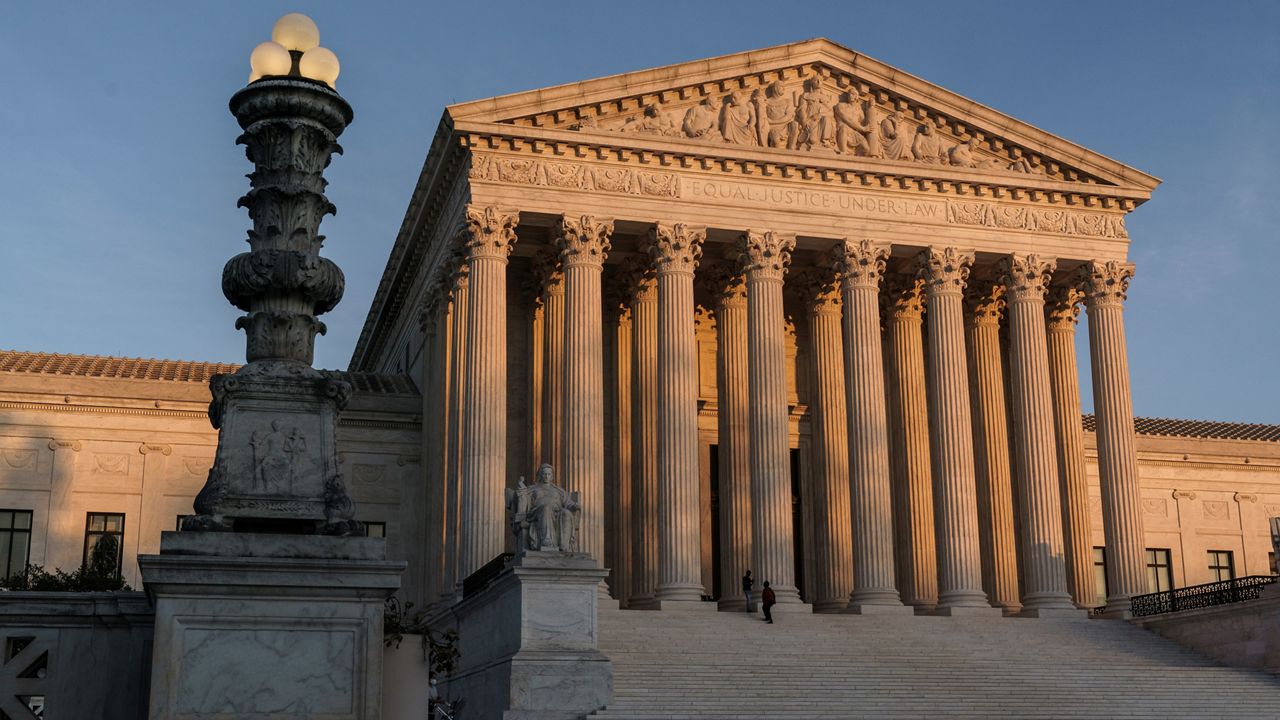The United States Supreme Court is hearing arguments today on a major voting rights case that could have nationwide implications as state and federal lawmakers on both sides of the aisle aim to enact voting legislation.
The case centers around two Republican-backed voting restrictions in Arizona that could challenge a key provision of the Voting Rights Act of 1965 that prohibits discrimination in voting practices and procedures based on race.
The nation's highest court, with a 6-3 Conservative majority, could determine the future of the provision, known as Section 2.
The case comes as Republicans in state legislatures nationwide are pursuing limitations to voting in the wake of former President Donald Trump's loss to President Joe Biden in the 2020 election. The former president espoused a number of false claims about widespread voter fraud, without evidence, and Republican proponents of the restrictions in the Arizona case are citing the need to combat voting fraud.
Trump lost the 2020 election to Biden — 306-232 — and there is no evidence of widespread election fraud in the 2020 election, a statement which has been backed up by a number of officials, including Trump's former attorney general William Barr and former Director of the Cybersecurity and Infrastructure Security Agency Christopher Krebs.
More than 60 lawsuits brought by the former president and his allies in multiple state and federal courts, including the Supreme Court, failed because they were unable to prove allegations of voter fraud.
The case, Brnovich v. DNC, centers on two Republican-backed measures:
- Discarding ballots from people who vote in the wrong precinct
- Outlawing the process known as "ballot harvesting," and only permitting only certain people – mail carriers, caregivers, election officials, and family members – to handle another person's ballot
A federal court invalidated those provisions, noting a "pattern of discrimination against minority voters has continued to the present day" and arguing that Arizona has a "long history of race-based discrimination against its American Indian, Hispanic, and African American citizens," but the state's Attorney General Mark Brnovich, a Republican, appealed the decision to the Supreme Court, arguing that the laws are "commonplace election administration provisions
Chief Justice John Roberts, appointed to the court by former President George W. Bush, argued with one of the attorneys defending the measures who argued that it is not the state's responsibility to maximize voter participation.
"Is it maximizing participation or equalizing it?" Roberts asked. "In other words, that only comes up when you have disparate results. And why should there be disparate results if you can avoid them?"
Justice Sonia Sotomayor, a liberal justice appointed by former President Barack Obama, argued that a lower court ruling "found no meaningful threat that ballot collection leads to fraud" when the attorney, Michael Carvin, defended "valuable anti-fraud concerns implicated in ballot harvesting."
The case is being argued by telephone due to COVID-19 concerns. A decision in the case is expected in June.



